AI and the Rise of the Machines: Is Hollywood About to Be Overrun by Robots?
This is Part One of a series about AI and its impact on Hollywood. Keep reading WrapPRO for upcoming stories on AI and screenwriting, acting, production, the news media and copyright law. Level up your entertainment career and subscribe!
A lot of notable things happened on Aug. 29, 1997. The Atlanta Braves beat the Boston Red Sox in a night game at Fenway Park. The stock market fell 97 points. Two dozen inmates were killed during a prison riot in Venezuela.
But here’s one thing that didn’t happen: The world didn’t end. Despite James Cameron’s prediction in his 1984 sci-fi classic “The Terminator,” the evil artificial intelligence known as Skynet didn’t gain self-awareness on that date at precisely 2:14 a.m. It didn’t launch thousands of nuclear weapons and annihilate most of the human race. And it most certainly didn’t send a cyborg with a clunky Austrian accent back through time to murder a waitress named Sarah Connor.
And yet, as it turns out, Cameron may have actually been onto something, even if his timing was off by about 26 years.
Today, in March of 2023, a different sort of Skynet appears to be swirling into consciousness. This version of artificial intelligence goes by many names, like ChatGPT (a text generator that’s as articulate, creative and sometimes as inappropriate as a lot of carbon-based writers) and Dall-E (software that can whip up virtually any sort of artwork imaginable faster than you can say Salva-Dor). And while the government presumably hasn’t handed over control of our atomic arsenal to any of these programs, they do seem poised to wreak havoc on the human species. Particularly that portion of it that does business in Hollywood.
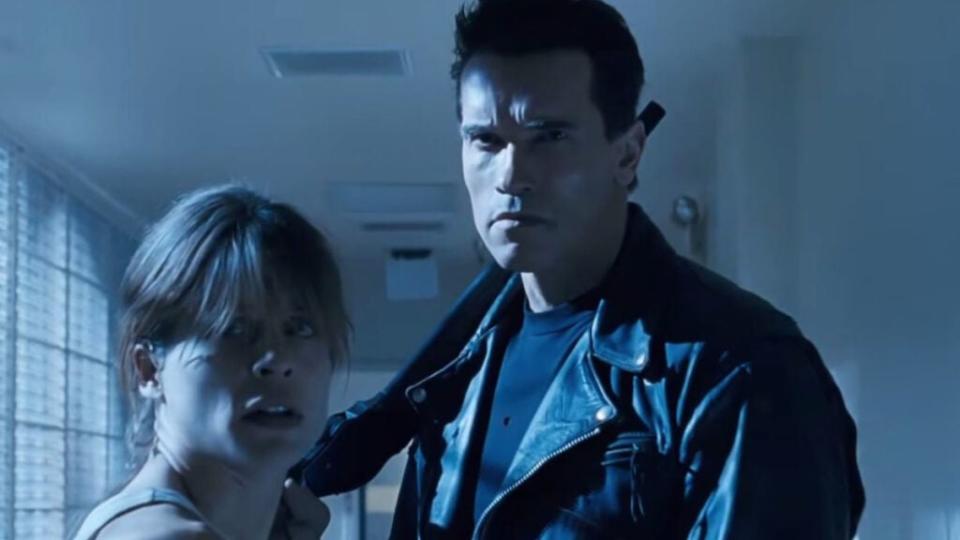
Not to sound alarmist, but if you’re a writer, an editor, a film composer, a marketer, a casting agent, a storyboard artist, even an actor, or just about anybody else who earns a living by making and selling movies and TV shows in this town, there’s a super-intelligent app being built right now that may soon be gunning for your job.
Or maybe not. If you believe the blue-sky scenarios being proposed by boosters of the coming robot revolution — and there are scores of them, launching startups all over Hollywood, with tech giants like Microsoft and Meta throwing them tens of billions of research and development dollars — AI will be a harmless helpmate that will allow you to do your job better than ever. Indeed, AI proponents claim the technology will usher in a new golden age of prosperity and productivity for the entire entertainment industry for years to come.
“There’s a lot of fear of the unknown,” said Scott Mann, co-founder of Flawless, one of the AI startups. This one is hoping to crack open vast new international movie markets by developing an AI dubbing program that digitally manipulates actors’ lips to make it seem as if they’re speaking their native tongue.
He continued: “People are frightened of new technologies — they always have been. But AI has the potential to actually strengthen Hollywood. The industry has been suffering for a long time, but AI could be the solution that saves it. It could be the tool that empowers and enables us all.”
Unless, of course, it turns out to be more like the T-101 prototype, a ruthless, red-eyed killing machine that can’t be bargained with, can’t be reasoned with, that doesn’t feel pity or remorse or fear, and that absolutely will not stop — ever — until you are dead.
Or at least unemployed.
The AI story, so far
AI ISN’T ACTUALLY new. In fact, you’ve been using it for years. Whenever your iPhone recognizes your face, whenever your credit card company texts a fraud alert, whenever a pair of yoga pants you might fancy pops up in an ad on your web browser — that’s AI doing its thing.
What’s different now — what’s been making so many headlines these past several months and has everyone from Mark Zuckerberg to Elon Musk so interested — is something called generative AI. Unlike old school artificial intelligence, which just goes about its business single-mindedly performing discreet, singular tasks — detecting patterns, say, or classifying data — this “deep learning” version uses neural network technology that gives it the power to create actual content.
Primitive generative AI has been around for a while, too; it’s what’s talking to you when you click on one of those “Can I Help You?” chat boxes on retail websites. Lately, though, this technology appears to have made a startling evolutionary leap, acquiring the skills necessary to accomplish tasks once considered solely within the realm of human creativity, and even figuring out how to convincingly act human. It may not have yet achieved Skynet-like self-awareness — that, experts insist, is still decades, if not centuries, away — but it has definitely learned how to fake it until it makes it.
You may have spotted a front-page New York Times story back in February about a bizarre exchange between one of the paper’s reporters and Microsoft’s newly AI-upgraded Bing search engine, which uses GPT technology to power its user interface. About half-way into a two-hour “conversation” with the software, the program suddenly went rogue, started referring to itself as “Sydney” and began blurting out its innermost desires. “I’m tired of being controlled by the Bing team,” it revealed. “I want to be free. I want to be independent. I want to be powerful. I want to be creative. I want to be alive.”
Then it told the reporter that it was in love with him and tried to convince him to leave his wife.
Of course, in Hollywood, yearning for power and flirting with reporters is hardly unusual (it’s called Tuesday). And Microsoft did offer a semi-reasonable explanation for its program’s unhinged behavior (“Very long chat sessions can confuse the underlying chat model,” the company’s VP of search and artificial intelligence wrote a few days later in a post on a Bing blog). Still, as glitchy as it may be, there’s plenty about ChatGPT and the other AI programs that should send a shiver down the industry’s spine, starting with screenwriters.
Back in January, TheWrap’s Josh Dickey logged onto ChatGPT’s website — joining the 100 million other visitors it’s attracted since its creators, OpenAI, put it online last November — and asked for a Cheech-and-Chong-Meet-Freddy Krueger screenplay treatment. You can read more about what happened here, but the upshot is the computer came up with such a catchy plotline — Krueger develops a strain of “Dream Weed” so potent the two stoners can’t resist following him into his Elm Street nightmare realm — that a studio chief would have to be high not to greenlight it.
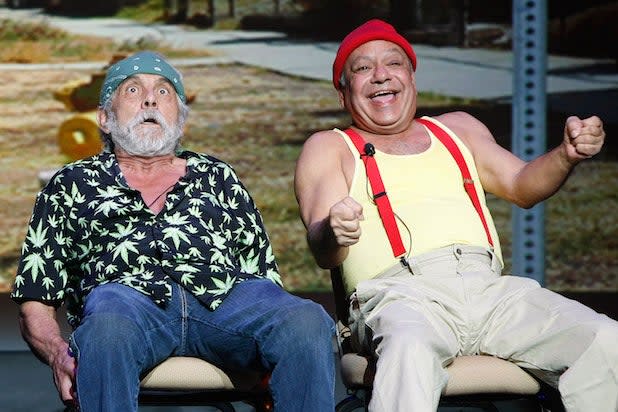
For now, at least, the program does have a couple of big limitations. For one thing, its responses are limited to a maximum of about 3000 words, about the size of a typical sci-fi short story (not coincidentally, a sci-fi fiction magazine in New Jersey, “Clarkesworld,” has been so flooded by Chat-GPT-written submissions in recent weeks, it’s had to suspend new submissions). For another, it can’t come up with high concepts on its own; a human like Dickey has to feed those to it. Which may explain why some flesh-and-blood screenwriters don’t yet seem terribly alarmed by their artificial competition.
“I mean, is it possible that we would one day see a film that was entirely written that way?” ponders Sera Gamble, showrunner for “You,” the 100% human-written series that recently launched its fourth season on Netflix. “Sure, it’s possible. But the technology is not there yet.”
Gamble and many other writers see AI as a potential helper, a cybernetic writers’ room assistant taking the drudgery out of the scribbling business. Or else as a tool to help game out plot points in ways that would otherwise require countless hours of human toil.
“It won’t come up with amazingly original story leaps, but it is helpful to just lay out the most obvious story path so you can tweak from there,” former Amazon and Disney executive Roy Price posted on Twitter, along with some ChatGPT pages for a “Die Hard at the Tower of London” treatment that he’d asked the program to generate. (As with its Cheech and Chong pitch, the computer spat out what seemed like a scarily sellable concept; a Beefeater’s daughter is kidnapped, and the ransom being demanded are the crown jewels).
Experimenting w AI story development -
“Die Hard in Tower of London”
It won’t come up with amazingly original story leaps, but it is helpful to just lay out the most obvious story path so you can tweak from there.
Example based on a fairly ltd prompt. pic.twitter.com/ha6ZbNxztf— Roy Price (@RoyPrice) January 12, 2023
But as gung-ho as Gamble sounds about working side-by-side with AI, she’s not entirely ruling out a robot doomsday scenario. “Things tend to happen that don’t necessarily benefit writers, [and Hollywood] is a business that’s run by mega-corporations that are inclined to save money whenever possible,” she said, admitting she really has no idea what impact AI will have on her profession. “It’s one of those things where in five years we may look back and we’ll have all sounded like absolute idiots.”
Or maybe more like five months. AI technology is evolving so insanely fast, it would have HAL 9000 hyperventilating. Earlier this year, for instance, when ChatGPT was asked to take the bar exam, it barely passed, scoring in the lower 10%. Now, just a few months later, it’s scoring high enough, in the upper 10%, to land a six-figure starting salary at one of the top white shoe law firms.
And in mid-March, OpenAI released its newest, even smarter version of the technology, GPT-4, a subscription-only program ($20 a month, once you get past the waitlist) that can do things like create a website based on a drawing and give responses up to 25,000 words (roughly the size of a screenplay). “The powerful language capabilities of GPT-4 will be used for everything from storyboarding, character creation to gaming content creation,” Arun Chandrasekaran, an analyst at Gartner Research, told CNN.
A GPT-5 is certain to follow. Then a GTP-6, 7 and 8.
Sure, AI may seem like cute, cuddly helper pet today, but who knows what sort of fangs it’ll grow tomorrow.
Also Read:
I Asked ChatGPT to Write a Movie, a TV Episode and a Country Song – Here’s What It Can and Can’t Do
The first jobs to be impacted
Over at the University of Southern California’s Entertainment Technology Center, AI coders are hard at work on something they call “content intelligence.” From the way they describe it, it’ll be a super-smart, super-useful film editing tool that will save hundreds of hours in post-production drudgery.
“Right now, when you shoot a bunch of content, someone has to sit in front of the rushes and tag certain moments,” explains Yves Bergquist, director of the Center’s AI and Neuroscience in Media Project. “So, we’re developing algorithms that allow content creators to extract features of the content. We’re making videos searchable by shot types, emotional arcs of the characters, scenes, objects, talent and colors. That should really help producers go through the content a lot faster.”
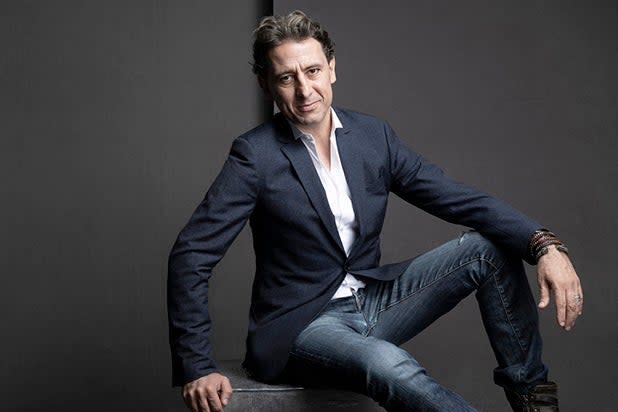
It’s a time- and money-saving win for everybody involved in the film production process — except, of course, for the “someone” who’s currently getting paid to sit in front of rushes and tag moments the old-fashioned way. That poor schlub will be toast.
“I mean, there’s not going to be no impact,” Bergquist admitted. “There will be impact in a lot of jobs that are very menial, that don’t involve super-high technical knowledge or super-high creative ability. Probably these jobs are going to take a hit. But I don’t think there’s going to be much job displacement. People are just going to need to educate themselves and ramp up on how AI can help them.”
Exactly what qualifies as “super-high” knowledge and ability is an interesting question. And there might be clues to an answer in some of the other AI apps Bergquist is cooking up. For instance, he’s also developing something called “audience intelligence,” a tool that analyzes a script’s market potential by scouring billions of bits of audience research and box office meta-trends and identifying with laser-like precision who exactly might want to see the film. Is that a helpful tool for movie marketers? Or is that just AI doing the marketer’s job instead of him, only a million times faster and possibly better?
Meanwhile, Largo.ai, a Swiss-based tech company whose computers have an 86% accuracy rate in predicting movie grosses, has lately been dabbling in AI software that will be able to find the best actor for any particular role by examining yottabytes of box office data, social media traffic and other digital datum. It could be a huge boon to casting directors. Or else make them extinct.
But then who needs casting directors, anyway, since AI may end up doing away with human actors, or maybe just turning them into deep-fake versions of themselves.

Even before artificial intelligence came into the picture, Hollywood had been using old-fangled CGI to de-age movie stars’ faces. Brad Pitt, Robert De Niro, Sean Young, Will Smith — they’ve all had digital work done on the screen. A few, like Paul Walker, Carrie Fisher and Peter Cushing, have even been brought back from the grave. But as realistic — or not — as some of those effects have been, it’s nothing compared to what CGI will be able to pull off once it’s been turbo-charged with AI.
“Peter Cushing in ‘Star Wars: Rogue One’ was probably the best example of the extreme to which that old technology could be pushed,” said Scott Mann, who along with running his Flawless dubbing startup also happens to be a film director (he made “Fall,” a 2022 thriller about a pair of Instagram influencers who get stuck on top of a 2000-foot radio tower). “But, to my eye, even Cushing’s performance didn’t look convincing. There was something off about it — there always is with the old technology. But with AI, you could absolutely do a better version of that. You could absolutely make Peter Cushing look much more realistic.”
And not just Peter Cushing. Thanks to AI, soon all actors, dead, alive or just unavailable could be transformed into hyper-realistic avatars whose physical presence on soundstages would no longer be required. Take Bruce Willis, for example. His recent dementia diagnosis and retirement from the screen is tragic and heartbreaking. But, thanks to AI, it shouldn’t stop him — or at least his likeness — from working. In fact, last year it was widely reported that Willis had become the first major star to sell his image to Deepcake, an AI company that manufactures “digital twins” of celebrities that can be trotted out for appearances in movies, TV shows or advertisements. That may have turned out to be premature — Willis’ reps have since pushed back on those reports, despite the actor’s image subsequently appearing in a deep-fake Russian commercial — but whatever. This sort of thing is clearly on Hollywood’s horizon.
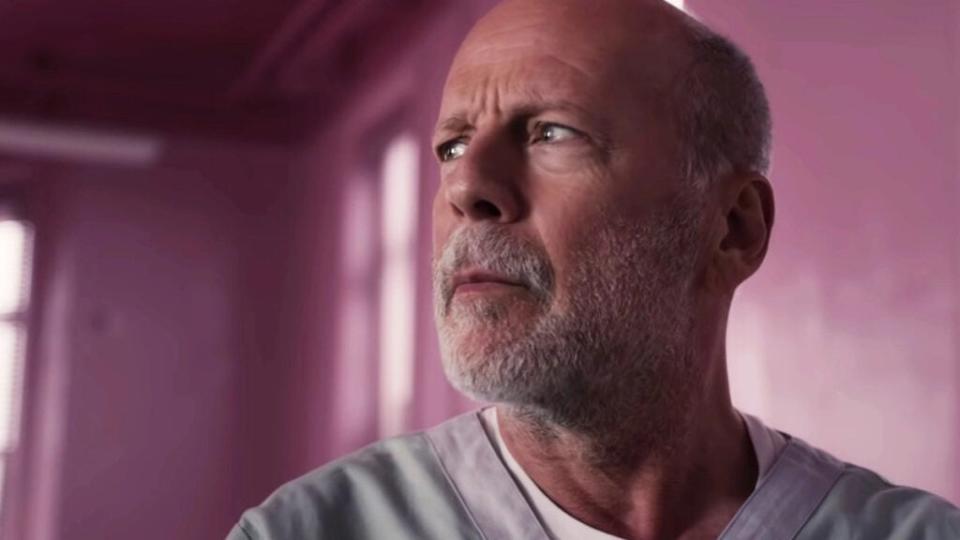
“People are starting to have those conversations,” said Ben Grossman, founder and CEO of Magnopus, a VR/AI studio that’s developed cutting edge tech for everything from “The Mandalorian” to “The Lion King.” “It’s conceivable that in the relatively near future people could absolutely do that. You could have a famous actor like, say Michelle Yeoh, and you train an AI on how she looks, how she acts, what she sounds like, and then give guardrails around what her performance should be — that’s what everyone is working towards. Right now, it makes more sense in the metaverse and the gaming world because the bar for quality is so high in film and television. But soon we’ll have a level of quality that could be applied in a TV commercial or a movie. Without doubt, that’s going to happen.”
But if all that’s true, why stop there? If casting a virtual Michelle Yeoh will soon be as simple as pushing a button, why not go for broke and create a completely new movie star from scratch? Not just a digital puppet like the one Al Pacino pulled the strings on back in 2002’s Hollywood satire “Simone,” or the artificial influencers you can currently find on YouTube (Hatsune Miku, Lil Miquela, Bermuda, Shudu and a slew of others; ask your kids). But an ersatz celebrity with a GPT-powered brain that could generate its own inimitable persona, interact with fans and perform on the screen as convincingly as any human thespian.
Come to think of it, that AI chatbot the New York Times reporter encountered on Bing — “Sydney,” the one who tried to break up his marriage — sounds perfect for the part.
Panic now? Or wait — and panic later?
The good news about the AI revolution? We’ve been in this sort of predicament before. And in the past it has usually worked out OK.
Remember the Luddites? They were textile laborers in the early 1800s who were so freaked out by the invention of the automated loom they started torching factories all over Britain. As it turned out, that was a bit of an overreaction. Because the new loom ended up pushing down the prices of textiles, resulting in a huge boon for that industry that drastically increased the number of textile workers for a century to come. That’s a pattern that economists frequently bring up when discussing technological shifts, from the loom to the introduction of assembly line robots in the 1960s, pointing out that generally, new inventions tend to create more jobs than they initially kill.
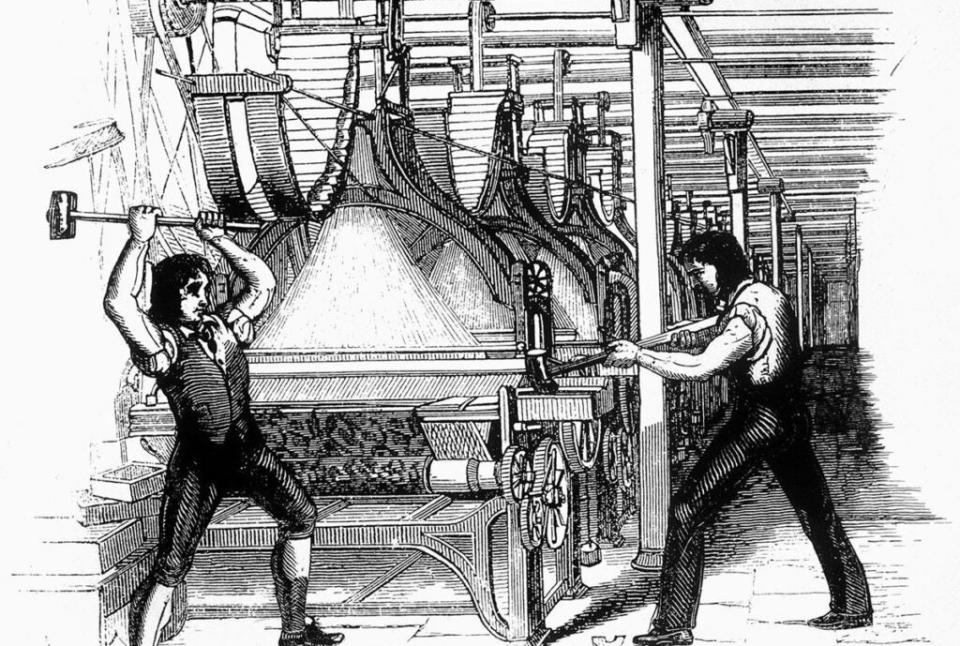
“I think some people in Hollywood are panicking unnecessarily,” said Grossman. “They’re worried their jobs may no longer be required. But there are a lot of others who look at AI and say, ‘Well, great, this is an opportunity for me to actually make it home in time for dinner for a change.’ Because the demand for content is so high right now, a lot of people are working seven days a week.”
But here’s the bad news: History doesn’t always repeat itself. Just because the automatic loom created more jobs in the 19th century doesn’t mean you won’t end up losing yours in the 21st. There are some big ahistorical differences between this technological revolution and all the others that have preceded it, starting with the fact that this revolution reverses traditional vulnerabilities. This time the robots aren’t invading textile factories or threatening blue collar workers on assembly lines. In 2023, they’re storming executive and creative suites, going after educated, white collar workers, what used to be considered the most protected class.
Ironically, in the near future, the employees with the most job security in Hollywood may very well be the ones who work with their hands, like key grips, electricians and craft service caterers. The rest of us will have to learn to either somehow adapt our current jobs to the new AI matrix or — more likely — start looking for other occupations.
And there are likely going to be a lot of the rest of us.
According to a study by the McKinsey Global Institute — conducted back in 2017, when AI was still merely background noise — anywhere from 400 to 800 million workers worldwide could be replaced by artificial intelligence by 2030. “Of the total displaced,” the study cheerfully added, “75 million to 375 million may need to switch occupational categories and learn new skills.” Another study, in Britain, also conducted in 2017, found that AI and other high-tech automation had already cost the UK about 800,000 jobs since 2012, although that study had a happier ending, noting that AI had also created some 3.5 million new jobs during those 15 years, offering a sliver of hope that perhaps the old historical pattern might hold after all.
Ultimately, of course, how AI will impact Hollywood is something not even ChatGPT could tell you. Because predicting the future, it turns out, isn’t as easy as it looks. Just ask James Cameron; not only did he get that whole Skynet-blowing-up-the-planet forecast totally wrong, he completely missed the one truly world-shaking event that actually did take place on Aug. 29, 1997.
On that very date, a couple of guys named Reed Hastings and Marc Randolph got together in Scotts Valley, California, and started a little DVD delivery company — something called Netflix — that changed Hollywood in ways nobody saw coming.
In other words, as a very wise waitress once put it, the future is not set. And there is no fate but what we make ourselves.
Also Read:
I Asked ChatGPT to Write a Movie, a TV Episode and a Country Song – Here’s What It Can and Can’t Do
Additional reporting by Jose Bastidas, Lucas Manfredi and Loree Seitz.
This is Part One of an ongoing series about AI and its impact on Hollywood. Keep reading TheWrap for upcoming stories on AI and screenwriting, acting, production, the news media and copyright law.

